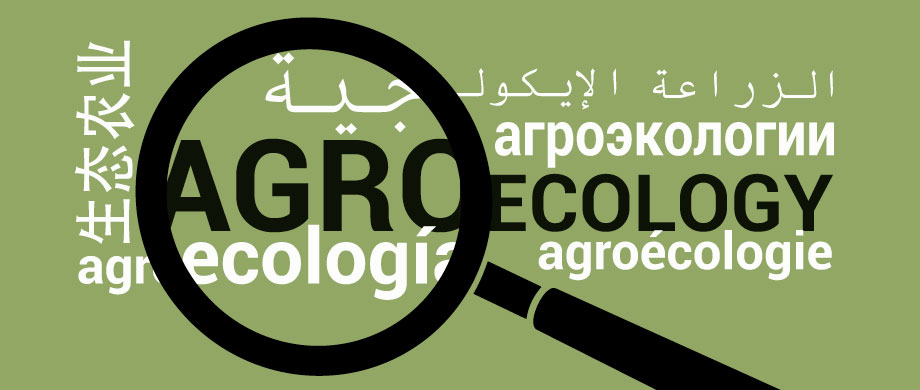Agroecology has been defined in many ways, in many places, and by many different stakeholders. Since the 1920s, scientist and researchers have used the term agroecology to refer to the application of ecological principles to agriculture. However, it was not until the early-1980s that the discipline of "agroecology" was named by ecologists, agronomists and ethnobotanists.
Because of this wide spectrum of different applications and understandings of the term agroecology, FAO has organized a database of definitions. FAO is collecting various definitions of agroecology from published documents, authored by scientists, civil society, academia, governments, legal documents and policies, among other sources.
This database shows how diverse agroecology can be. Yet it also demonstrates that different definitions use and share common elements, adjusted to the local circumstances. These common elements are captured by FAO in its framework on agroecology.
FAO’s framework of 10 elements on agroecology is derived from the common principles articulated for agroecology, including a combination of bio-physical and socio-economic elements that are grounded in the three pillars of sustainable development – the social, the economic and the environmental. Different elements may come into play in various configurations, with a strong blend of social, economic and environmental aspects.
Agroecology can be defined broadly or narrowly. Loosely defined, agroecology often incorporates ideas about a more environmentally and socially sensitive approach to agriculture, one that focuses not only on production, but also on the ecological sustainability of the productive system. This definition implies a number of features about society and...
United States of America
Definition
2007
L'agro-écologie est l'utilisation intégrée des ressources et des mécanismes de la nature dans l'objectif de production agricole. Elle allie les dimensions écologique, économique et sociale et vise à mieux tirer parti des interactions entre végétaux, animaux, humains et environnement.
France
Definition
2015
Ciencia que persigue la armonía entre los objetivos de la actividad agraria y la sostenibilidad de los recursos del suelo, agua y vegetación, en relación ecología-desarrollo.
Costa Rica
Definition
2000
A Agroecologia é entendida como um enfoque científico destinado a apoiar a transição dos atuais modelos de desenvolvimento rural e de agricultura convencionais para estilos de desenvolvimento rural e de agricultura sustentáveis (Caporal e Costabeber, 2000; 2001; 2002). Partindo, especialmente, de escritos de Miguel Altieri, observa-se que a Agroecologia constitui...
Brazil
Definition
2007
Agroecología: ciencia que ofrece la base científica para la agricultura sostenible. Se apropia de varias disciplinas para el análisis de todo tipo de proceso de la actividad agraria, con el propósito de comprender el funcionamiento de los ciclos minerales, las transformaciones de energía, los procesos biológicos y las relaciones socioeconómicas.Agricultura...
Nicaragua
Definition
2013
Se entiende por Agroecología la ciencia cuyos principios están basados en los conocimientos ancestrales de respeto, conservación y preservación de todos los componentes naturales de agroecosistemas sustentables a cualquier escala o dimensión.
Venezuela (Bolivarian Republic of)
Definition
2008
Total results:19

